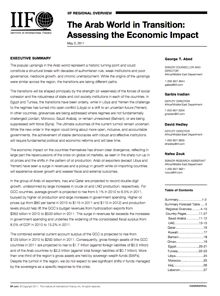
Syrian rights groups say more than 1000 citizens were arrested and held on charges of "degrading the prestige of the state," according to Reuters, while Syrian government continuously report arrests of members of armed groups that “threaten national unity”.
Hundreds of people were detained in the past few days and now face the possibility of up to three years in prison for the above offence, said the news agency, however the government has released hundreds of prisoners over recent weeks.
The state news agency, SANA, said the government continued to arrest members of armed groups that “threaten national unity”.
SANA also reported today that the National Progressive Front – a collection of legal political parties of which the Ba’ath Party is a member – said Syria “is capable of overcoming the conspiratorial scheme and preserving national unity”.
According to an unidentified military source, Syrian army and security forces found a large amount of weapons buried in various places around Daraa, reported the state-owned Tishreen newspaper.
The Ministry of Interior called upon citizens who “took arms, attacked security forces or spread false information about the events in Syria” to surrender by May 15 and to hand over their weapons to the Syrian authorities.
The government said those who surrender will not be held accountable for their “unlawful acts”.
Security forces reportedly entered the coastal city of Banias on Tuesday, protest leader Anas al-Shugri told Reuters. Previously the army had surrounded the city.
Shugri told the news agency the protesters had been in control of the city centre since April 10, when armed gangs attacked protesters who called for the overthrow of the government.
The Syrian authorities have described Banias as a “centre of Salafist terrorism”.
As-Safir newspaper said life in Damascus is gradually going back to normal. According to local sources, the security operation in Daraa is about to end, the pan-Arab daily reported.
Electricity is back in Dara’a suburbs and villages and most checkpoints around Duma were lifted.
Tens of women took to the street in Salheye in the center of Damascus for the second day in a row. According to AFP more around 150 women participated in the second demonstration. Several women were arrested in a protest on Monday.
International pressure on the government continued to mount as Turkish Prime Minister Tayyip Erdogan told a Turkish news channel that Assad did not take his advice to release political prisoners.
"He says he will do it, but honestly I am having doubts,” said Erdogan, who has telephoned Assad several times recently.
The state released the figure of 128 deaths since the protests erupted in Deraa on March 18, which includes 78 military-security personnel.
The figure does not tally with other estimates, which say at least 560 civilians have been killed in attacks on demonstrators, according to human rights groups.
In a sign that the unrest has damaged the economy, the Union of Arab Banks said up to 8 percent of deposits in Syrian bank accounts had been converted into US dollars.
A global bank group, the Institute of International Finance, said today that Syria would probably enter a recession, along with Egypt, Tunisia and Yemen.
The IIF, a Washington-based global bank group representing more than 430 banks and financial institutions worldwide, said Syria’s economy would shrink by 3 percent.
The government has said none of Osama bin Laden’s family is in Syria, adding that his first wife flew to Doha months ago, reported al-Quds al-Arabie.
Najwa Ghanem, the first wife of Osama bin Laden, lived in the Ziraa neighborhood of Lattakia.
Ghanem is a native of a village in the countryside near Lattakia and married the leader of al-Qaeda in 1974 when she was 14 years old.

The Arab World in Transition: Assessing the Economic Impact, Institute of International Finance, 2 May 2011 (27 pp., 300 Ko).












Stay In Touch
Follow us on social networks
Subscribe to weekly newsletter